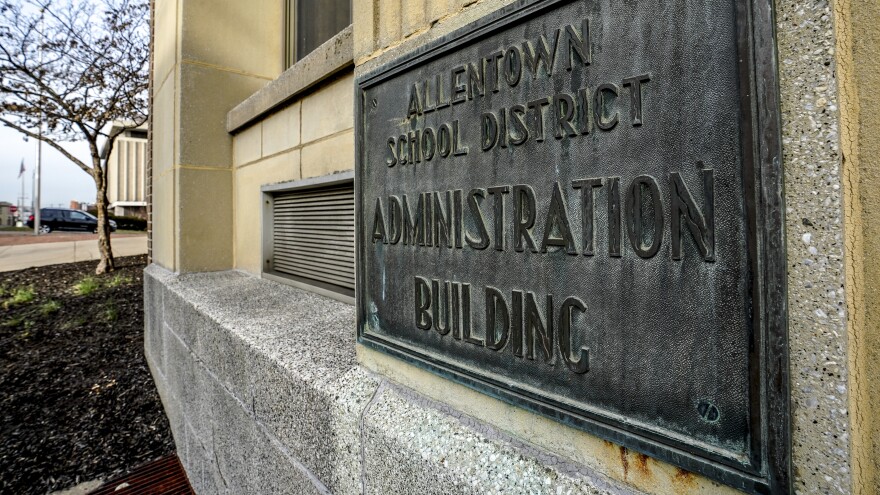ALLENTOWN, Pa. — Allentown School Board on Thursday approved its $483.4 million budget for the upcoming fiscal year while holding the line on taxes for the third consecutive budget cycle.
That keeps the district's property tax rate at 22.6432 mills, meaning the owner of a home valued at $100,000 for tax purposes would pay an annual $2,264.32 in school property taxes.
Some eligible Allentown residents will get a $1,013.35 reduction to their property taxes thanks to a state program funded through gambling revenue.
Interim Chief Financial Officer Jeffrey Cuff said the district’s fund balance total will be available next month after an audit.
School directors also approved a resolution Thursday to transfer extra dollars from the fund balance into the district’s capital reserve fund.
The district will keep 8% of the current year’s operating budget expenditures in its fund balance.
According to a May presentation from the district’s financial consultant, ASD’s fund balance was about $37.8 million.
According to the same presentation, ASD won’t have to contend with a deficit in any budget cycle through 2027-28 if it gets additional adequacy supplement funding from the state, as was proposed in Gov. Josh Shapiro’s spending plan.
Without the additional adequacy investment, the district could see a $2.5 million deficit by 2027-28, requiring a 1% property tax increase in each of the next two budget cycles, the consultant said.
Adequacy Supplement
Last year was the first time poor school districts across the state received an adequacy supplement to address their chronic underfunding.
The adequacy supplement money was the result of the state responding to a Commonwealth Court decision from a Republican judge who deemed Pennsylvania’s education funding system unconstitutional.
The judge ruled that students who live in neighborhoods with low incomes and low property values were at a disadvantage.
The adequacy supplement was meant to help close that gap.
ASD received a $20.23 million adequacy supplement in the 2024-25 budget.
Those funds went toward hiring teachers and other staff, as well as toward buying new instructional materials, according to a fact sheet from PA School Works, a public education advocacy organization.
The funds also were spent on improving school facilities and covering mandated costs, such as charter school tuition.
That initial supplement amount becomes part of the overall package the district will get from the state moving forward.
With its guaranteed adequacy funding, ASD plans to spend on salaries and benefits for instructional coaches, reading specialists, parent liaisons, school psychologists and other positions.
With any increases to the adequacy funding, ASD would use those funds to hire more staff, improve its facilities, cover the costs of state-mandated training and implement a new student program.


